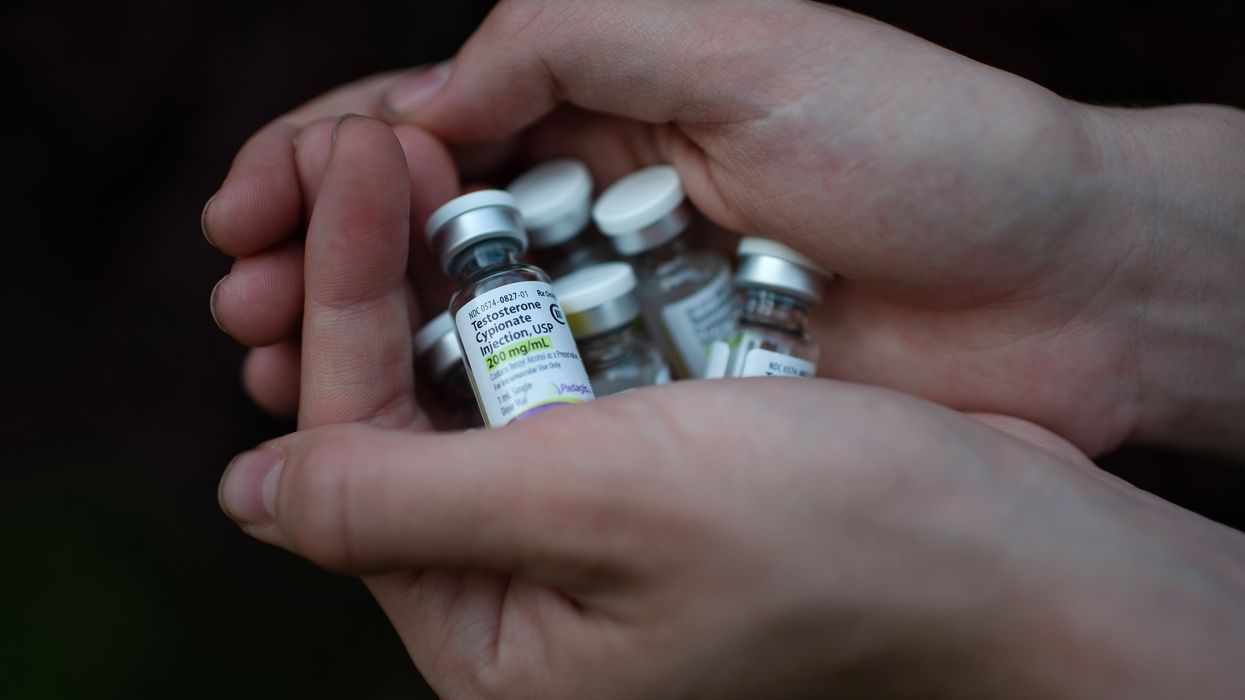Sheridan is a member of the board of Lawyers Defending American Democracy. He previously served as president of the Rhode Island Bar Association.
In the past three years, 23 states have passed legislation that prohibits physicians and other health care providers from providing gender affirming health care to transgender minors. These laws constitute an extreme, unprecedented attack on transgender adolescents, their families and the medical providers who care for them.
Criminalizing accepted medical treatments irresponsibly interferes with the patient-physician relationship and will eliminate the rights of parents to support their transgender children. Worse, prohibiting necessary health care for transgender teens will result in needless suffering and, possibly, suicide. Finally, the National Institutes of Health has noted that these laws are premised on false, unfounded medical claims and assumptions that have been vigorously opposed by virtually every major medical organization in the country, including the American Medical Association, the American Academy of Pediatrics and the American Psychiatric Association.
These cruel laws are grounded in disinformation and bias. They are built on falsehoods that ignore research and facts, and only bring harm to an already vulnerable community.
Gender dysphoria is not, as some legislators contend, a contemporary fad and should not be casually dismissed. Rather, it is a clinical condition marked by distress caused by a discrepancy between a person’s gender identity and that person’s gender assigned at birth, or the gender society perceives them to be. This incongruence can lead to clinically significant distress and impair functioning in many aspects of a person’s life. If not properly treated, gender dysphoria can result in debilitating depression, anxiety, eating disorders, substance use, self-harm and suicide.
The widely accepted view of the medical community is that gender-affirming care is the appropriate treatment for adolescents experiencing gender dysphoria. Gender-affirming care is care that supports a child or adolescent as they explore their gender identity — in contrast with efforts to change the individual’s gender identity to match their sex assigned at birth. There are multiple, well-established, evidence based clinical protocols for the treatment of gender dysphoria.
Gender-affirming medical interventions for adolescents, including, for example, puberty blockers, are only recommended if numerous, specific clinical conditions are documented. Puberty blockers delay irreversible pubertal development until adolescents are old enough and have had sufficient time to make more informed decisions about whether to pursue further treatments. Contrary to the “legislative findings” in many of these state laws, puberty blockers are not “unproven,” “harmful” or “experimental.” Puberty blockers have been prescribed by pediatricians and endocrinologists for over 30 years to treat precocious or early onset of puberty. The efficacy, safety and side-effect profile of puberty blockers are well established. They are also, despite claims to the contrary, “fully reversible.”
Gender affirming surgical interventions are generally not recommended for transgender adolescents. A comprehensive, multiyear study confirmed that such interventions for transgender adolescents are rare.
Finally, many of the states that have enacted these bans have done so with an express finding that a “substantial” or “large” majority of children who experience distress identifying with their biological sex come to identify with their biological sex in adolescence or adulthood. This is simply not true. An NIH survey found that only 8 percent of transgender respondents reported they had temporarily or permanently detransitioned at some point and the majority did so temporarily.
The adverse consequences of these laws are clear, direct and deeply concerning. Decades of research has confirmed that transgender adolescents are at a heightened risk for anxiety, depression and suicide. A recent study conducted by the NIH found that 56 percent of transgender youth reported a previous suicide attempt and 86 percent reported suicidality. Numerous studies have also consistently demonstrated that gender-affirming interventions significantly reduce the incidence of depression and suicide for transgender and nonbinary youths. Despite this evidence, an estimated 38 percent of all transgender adolescents in America now live in states which restrict their access to medical care critical to their well-being.
A thriving democratic society requires leaders to openly debate and engage the public in discourse based on facts and science. We should seek to eliminate, not create, laws that marginalize or scapegoat selected members of society. And respect for individual autonomy in matters that involve deeply personal choices distinguishes a democracy from societies in which those with power determine how individuals and families should live.
Laws that deprive transgender adolescents, their parents and their medical providers of the freedom to make informed decisions with respect to safe, evidence based clinical care contravene these fundamental principles.




















